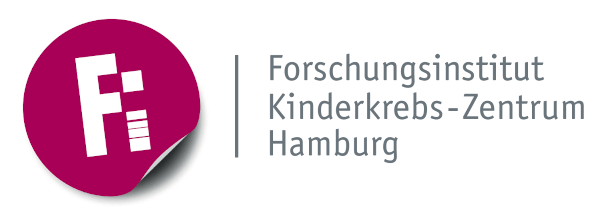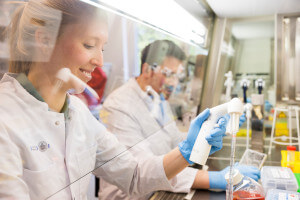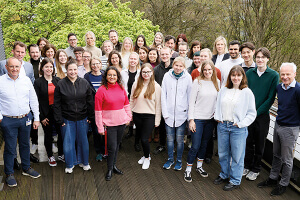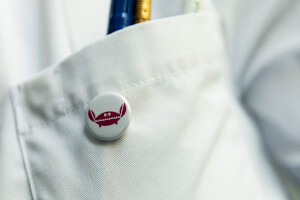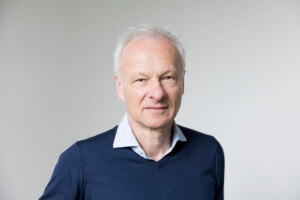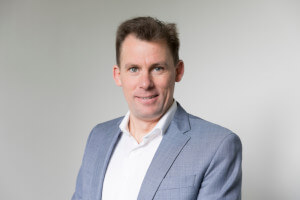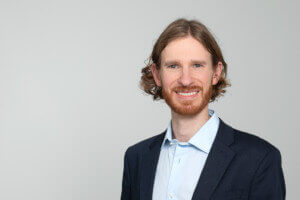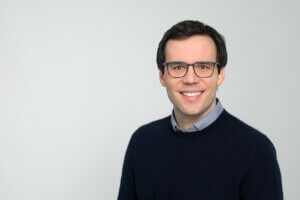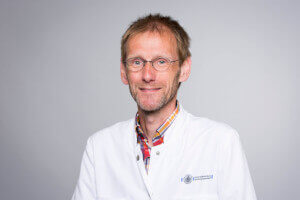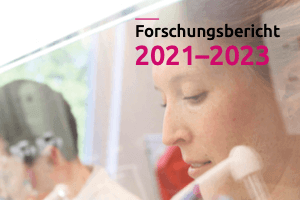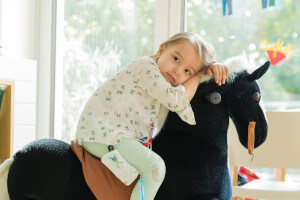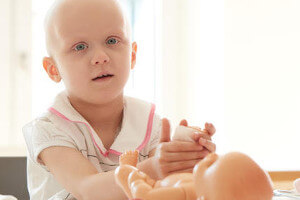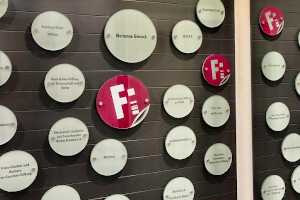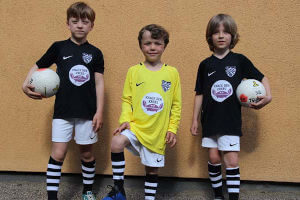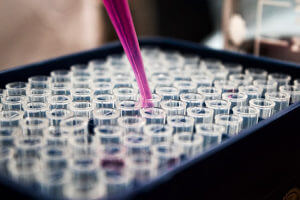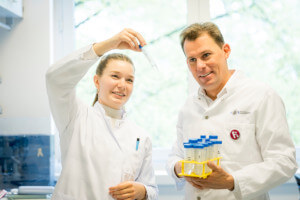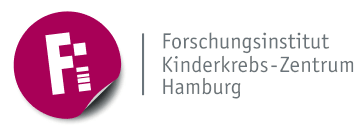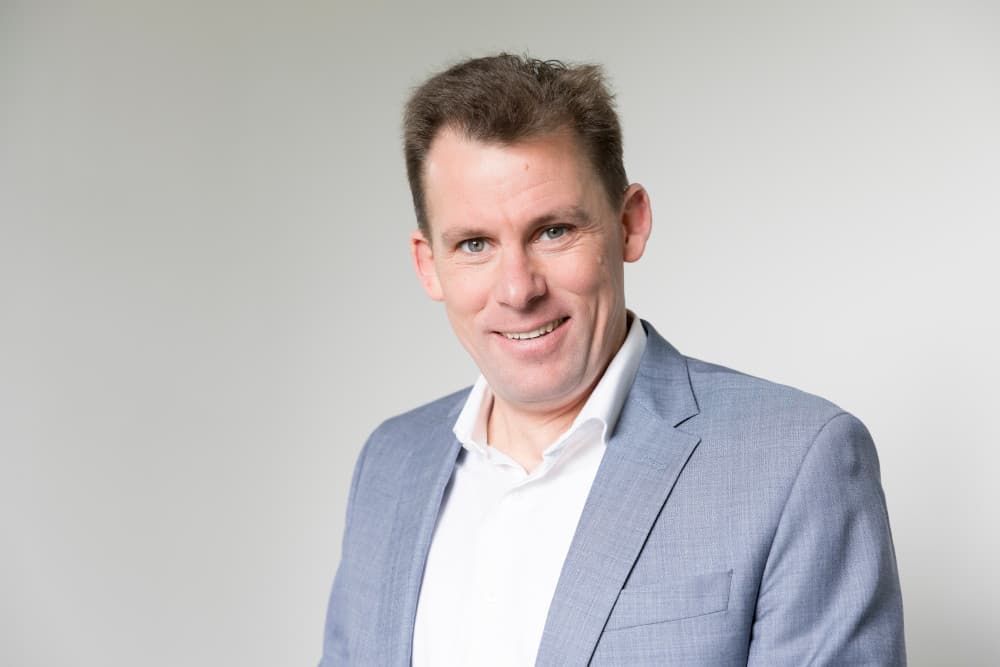
Research Institute Children's Cancer Center Hamburg receives funding from “Fight Kids Cancer”
The European "Fight Kids Cancer" (FKC) program has selected two projects involving researchers from the Research Institute Children's Cancer Center Hamburg for its 2024 funding round. They will receive funding of approximately 3 million euros. The research projects focus on childhood cancers that are particularly difficult to treat.
Diagnosis using cerebrospinal fluid - independent of surgery
One of the grants will support the SOUP research project (Scanning the liquids of pediatric brain tumor patients to personalize treatment). The goal of the project is to develop a reliable, minimally invasive molecular test for brain tumors in children and adolescents that can be used to accurately assess the cancer independently of surgery. The international research team, which includes 14 centers in seven countries, is analyzing genetic material fragments from cerebrospinal fluid. The project is funded by the FKC with 1,998,000 euros.
"My research group has been working for a long time on the diagnosis of brain tumors using cerebrospinal fluid. Now we have succeeded in detecting and analyzing the tiniest amounts of free DNA," says Prof. Ulrich Schüller, head of the Developmental Neurobiology and Pediatric Neurooncology research group at the Research Institute "Kinderkrebs-Zentrum Hamburg". The decisive step forward was achieved by so-called nanopore sequencing. This method was used to detect characteristic tumor signatures in cell-free DNA from patients' cerebrospinal fluid (CSF). The DNA comes from dead tumor cells in the brain. When they die, their genetic material, the DNA, is released into the cerebrospinal fluid.
In search of new drugs against brain tumors
The second grant is for the EUROPE project (Exploring unknown relapse origins in pediatric ependymoma). It focuses on the third most common type of malignant brain tumor in children, ependymomas. In the event of a relapse, the chances of survival for affected children have been poor. David Ghasemi is the scientific coordinator of the project. He is a physician at the University Medical Center Hamburg-Eppendorf and a scientist at the Research Institute "Kinderkrebs-Zentrum Hamburg" in the Schüller research group as well as at the "Hopp Children's Tumor Center Heidelberg" (KiTZ). Within the framework of EUROPE, studies of tumor material will reveal the cellular mechanisms involved in relapse and identify new vulnerabilities in tumor biology. "We are convinced that the development of new, effective drugs against ependymoma can only succeed if we really understand the biological basis of this complex tumor type. With EUROPE, we want to make a decisive contribution to this," says David Ghasemi. EUROPE is funded with 878,000 euros and involves four centers in Germany and the Netherlands.
Managing Director Wiebke Cramer emphasizes the importance of funding in the context of national and international research cooperation: "The number of childhood cancers is very low. At the same time, they are the patients who lose the most years of life or must live the longest with the late effects of treatment. That is why support for pediatric cancer research is so important. We are pleased to be able to advance research in close collaboration with other research institutions."
"Fight Kids Cancer" is a European program supported by non-profit organizations dedicated to fighting childhood cancer and supporting affected families. It supports transnational early clinical trials and clinical research projects that have the potential to make a lasting difference for children with cancer. Five fundraising organizations have joined forces: Imagine for Margo (France), KickCancer (Belgium), Fondatioun Kriibskrank Kanner (Luxembourg), CRIS (Spain) and Kika (the Netherlands) receive donations from charity events such as charity runs.
Scientific contact
Prof. Ulrich Schüller
Research Institute "Kinderkrebs-Zentrum Hamburg
Email: schueller@kinderkrebs-forschung.de
Press Contact
Research Institute "Kinderkrebs-Zentrum Hamburg
Building N 63
Martinistr. 52
20251 Hamburg, Germany
Email: presse@kinderkrebs-forschung.de
About the Research Institute Children's Cancer Center Hamburg
The Research Institute Children's Cancer Center Hamburg was founded in 2006 by the Fördergemeinschaft Kinderkrebs-Zentrum Hamburg e.V. with donations. At the institute, a multidisciplinary team of around 50 clinically active doctors, scientists, technical assistants, and dedicated employees investigate the molecular mechanisms of cancer development in children in order to develop new approaches for better and more targeted therapies. Donations, sponsorships, and private commitment make the research work possible. The institute is supported by a scientific advisory board and works closely with the University Medical Center Hamburg-Eppendorf (UKE) and the Leibnitz Institute of Virology (LIV). Cooperation with national and international research institutions as well as with clinical patient care at the UKE creates optimal conditions for the successful treatment of children with cancer. Around half of the project costs are covered by competitive third-party funding - including from the German Research Foundation, German Cancer Aid, the Federal Ministry of Education and Research, and the European Union.
About childhood cancer
In Germany, around 2,200 children and adolescents are diagnosed with cancer every year - the most common forms are blood cancers (leukemias), brain tumors, and tumors of the lymphatic tissue. In contrast, carcinomas, which account for more than 90 percent of new cases in adults, are rare. Being diagnosed with cancer is deeply upsetting for families and turns everyday life upside down. Treatment usually lasts for weeks and months. The various forms of therapy are extremely stressful for young patients. Acute side effects are highly likely to occur. Another cause for concern is the increasing number of serious late effects of radiotherapy and chemotherapy for childhood cancer. In general, thanks to successful research in recent decades, great success has been achieved in the fight against childhood cancers. Today, the diseases are curable in many cases: around 80 percent of all those affected survive. This is a great success when you consider that just a few decades ago, these children had hardly any chance of survival. Nevertheless, too many children still die of cancer today or experience a serious loss of quality of life as a result of the disease or the treatment methods.
